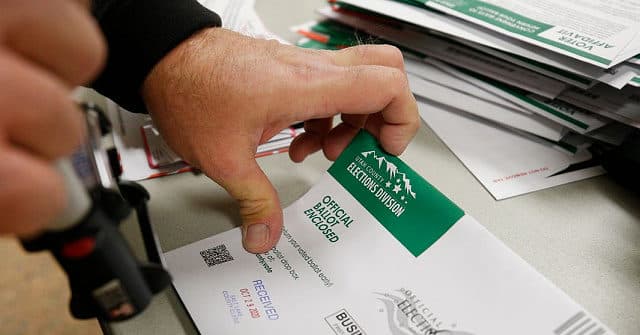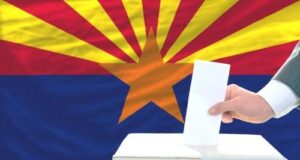The U.S. Supreme Court (SCOTUS) on Thursday upheld the Arizona statute that bans ballot harvesting and a policy that throws out votes cast by persons in precincts in which they do not reside.
Justice Alito wrote for the majority in a 6 to 3 decision that neither Arizona’s HB 2023 banning ballot harvesting nor the policy outlawing out-of-precinct voting violates Section 2 of the Voting Rights Act which bans racial discrimination.
Alito was joined by Chief Justice Roberts and Justices Thomas, Gorsuch, Barrett, and Kavanaugh.
Justice Kagan wrote the dissent, joined by Justices Breyer and Sotomayor.
“In these cases, we are called upon for the first time to apply Section 2 of the Voting Rights Act to regulations that govern how ballots are collected and counted. Arizona law generally makes it easy to vote. All voters may vote by mail or in person for nearly a month before election day, but Arizona imposes two restrictions that are claimed to be unlawful,” Alito wrote in his majority opinion
Thursday’s SCOTUS decision reverses the previous decision of the U.S. Court of Appeals for the 9th Circuit, which struck down both statutes for what it determined were violations of Section 2 of the Voting Rights Act, as Scotusblog reported:
The court of appeals applied a two-part test, known as the “results test,” to reach that outcome. In the first step, according to the court of appeals, the question is whether the policy or law being challenged disproportionately affects the ability of a racial minority group to “participate in the political processes and to elect candidates of their choice.” If it does, then the next question is whether there is a link between the challenged policy or law and social and historical conditions, creating the inequality in opportunities.
During oral arguments held in March questioning by Justice Barrett, Justice Thomas, Justice Gorsuch, and Chief Justice Roberts suggested they were skeptical of arguments the two Arizona statutes violated Section 2.
Chief Justice Roberts honed in on the issue of ballot harvesting, citing a 2005 report on federal election reform, as Scotusblog reported:
The commission, Roberts noted, “said that absentee ballots are the largest [source] of potential voter fraud” and “recommended that the practice of allowing candidates or party workers to pick up and deliver absentee ballots should be eliminated.”
Arizona Secretary of State Katie Hobbs, a Democrat, refused to defend the two Arizona statutes, and instead, was represented by counsel who argued in oral arguments that the decision by the court of appeals to throw out both statutes should be upheld.
Arizona Attorney General Mark Brnovich, a Republican who has since announced his candidacy for the U.S. Senate, defended the two Arizona statutes during oral arguments.
The case is Brnovich v. Democratic National Committee, No. 19–1257 in the Supreme Court of the United States. The case was consolidated with Arizona Republican Party v. Democratic National Committee.






